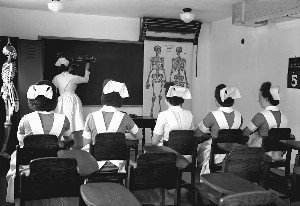Naulia Anggraini, Hadi Prayitno, Rochmad Setiawan
The Effect of on the Job Training Experience and Motivation on Job Readiness of Diploma Three Cadets at the Indonesia Civil Pilot Academy of Banyuwangi
Introduction
The effect of on the job training experience and motivation on job readiness of diploma three cadets at the indonesia civil pilot academy of banyuwangi. Explore the effect of on-the-job training & motivation on job readiness for Diploma Three cadets at Indonesia Civil Pilot Academy of Banyuwangi. Findings show a limited 8.7% impact.
Abstract
On the Job Training is a provision of knowledge through motivation that encourages mature work readiness. The purpose of the study is to see how API Banyuwangi three-year diploma programme cadets are prepared, especially motivation and job training. By distributing it to 26 samples of cadets and using SPSS 29 software. The collected data were subjected to validity test, reliability test, multiple regression analysis, hypothesis test, coefficient of determination analysis, and classical assumption test. The study found that On the Job Training is influenced by motivation, both separately and in combination have little effect on work preparation. That is, motivation and On the Job Training amounted to 8.7%, while other variables amounted to 91.3%. This study aims to support academics in improving job training programmes and to obtain more reliable results, it is recommended that future studies involve more people and collect larger sample sizes.
Review
This study investigates a highly relevant topic concerning the readiness of future pilots, specifically examining the contributions of on-the-job training (OJT) and motivation among Diploma Three Cadets at the Indonesia Civil Pilot Academy of Banyuwangi. The objective to understand how these factors contribute to job readiness is clear and timely, especially for vocational training programs. The authors employed a quantitative approach, utilizing SPSS 29 for data analysis, including validity and reliability tests, multiple regression, hypothesis testing, coefficient of determination, and classical assumption tests, which indicates a standard analytical framework for such an inquiry. However, the abstract presents several areas that warrant closer scrutiny and suggest significant limitations. The sample size of 26 cadets is notably small for a study employing multiple regression analysis, which severely impacts the generalizability and statistical power of the findings. Furthermore, the phrasing of the key result—"On the Job Training is influenced by motivation, both separately and in combination have little effect on work preparation"—is somewhat ambiguous and could benefit from clearer articulation regarding the independent and dependent variables. The finding that OJT and motivation account for only 8.7% of the variance in work preparation, while 91.3% is attributed to other unexamined variables, is a critical outcome that points to the need for a broader conceptualization of job readiness in this context. Despite these limitations, the study offers valuable insights for academic institutions to reflect on their job training programs. The recommendation for future research to involve larger sample sizes is crucial and well-placed. Beyond increasing sample size, it would be beneficial for subsequent studies to explore the "other variables" that account for the vast majority of job readiness variance, potentially including factors like intrinsic aptitude, psychological resilience, technical skills acquisition beyond formal OJT, or mentorship quality. A clearer definition and measurement of "job readiness," "motivation," and "on-the-job training experience" specific to the aviation cadet context would also strengthen future investigations.
Full Text
You need to be logged in to view the full text and Download file of this article - The Effect of on the Job Training Experience and Motivation on Job Readiness of Diploma Three Cadets at the Indonesia Civil Pilot Academy of Banyuwangi from Formosa Journal of Science and Technology .
Login to View Full Text And DownloadComments
You need to be logged in to post a comment.
Top Blogs by Rating
Genetic Dark Matter: The Unsee...
By Sciaria
Electro-Pulse: Unveiling the U...
By Sciaria
Whispers from the Walls: Unloc...
By Sciaria
Favorite Blog
Is Electro Music the New Class...
By Sciaria
The Invisible Load: Unveiling...
By Sciaria
Unleash Your Inner Explorer: T...
By Sciaria
Related Research
Factors of purchase decisions for thrift fashion products among undergraduate fashion education students
“eu fiz o mapa que você tem que escolher o caminho que vai seguir”
"la balada del otoño" y otros poemas hallados de lucía sánchez saornil
Share
Notice Board
- OPACITà ALGORITMICA E SOVRANITà EPISTEMICA NEL CONTESTO DEL CAPITALISMO DELLE PIATTAFORME
- TRANSLATION AND VALIDATION OF ADOLESCENT PERSONALITY QUESTIONNAIRE: A CONFIRMATORY FACTOR ANALYSIS
- INTERNALIZATION OF ISLAMIC VALUES AND PIOUSNESS OF DAQU PRIMARY SCHOOL STUDENTS BASED ON TAHFIDZ AND NATIONAL CURRICULUM





